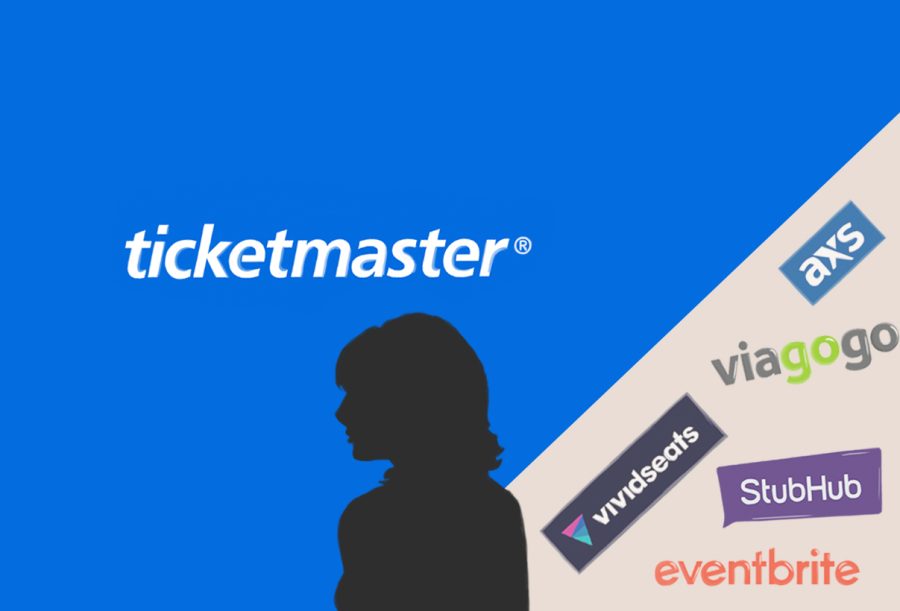Opinion: The “bad blood” between Swifties and Ticketmaster all comes down to an unchecked monopoly
Taylor Swift’s song “The Great War” has a whole new meaning now. It represents the battle that was fought by 14 million Taylor Swift fans known as Swifties, including myself, attempting to buy tickets to her new Eras tour. Unfortunately, only two million succeeded. This drastically low success rate proves that the failures of Ticketmaster go beyond long queue lines and frequent website crashes, but is rather the epitome of an unchecked monopoly at its worst.
Between the hours spent repeatedly getting error codes and the excessive fees that popped up on the confirmation page, it is no surprise that Ticketmaster was the number one trending hashtag on Twitter, and instantly became the most hated company by millions, including politicians.
“Daily reminder that Ticketmaster is a monopoly,” United States representative Alexandria Ocasio-Cortez tweeted. “Its merger with Live Nation should never have been approved, and they need to be reigned in.”
In 2010, the Department of Justice (DOJ) allowed for a controversial merger between the two most powerful live music companies, Ticketmaster and Live Nation, despite desperate warnings from experts in various economic and political fields that this action would be catastrophic for live entertainment fans and consumers.
With this merge, competition is completely eliminated. Since no other company is threatening Ticketmaster’s number one position, it is no longer a priority for them to make sure their website is capable of handling millions of users, or to design their sales so that tickets are bought by real fans and not scalpers, who are people who buy tickets solely to resell them at a higher price.
For example, one lackluster attempt by Ticketmaster to deter the scalpers is to limit the number of tickets one account can buy, since scalpers tend to buy in bulk just to resell for higher prices. However, one obvious way for scalpers to go around this rule is to make multiple accounts with multiple emails. At a ticket company convention, Ticketmaster representatives exposed to an undercover reporter the fact that they are well aware of scalpers making many accounts, saying “I have a gentleman who has got over 200 accounts.” In fact, Ticketmaster is encouraged to allow scalpers to buy millions of tickets per year with their hundreds of accounts, as it gives them a bigger profit with ticket transactions on a secondary market. Because of their incentive to make even more money combined with minimal competition, Ticketmaster is under no obligation to successfully solve the issue of scalpers.
Perhaps the most damaging effect of all is the unstoppable increase of ticket prices. In the third quarter of 2022, Live Nation reported a revenue of $6.2 billion, a 63 percent increase compared to 2019, and an operating income of $506 million, a 95 percent increase since 2019. The additional fees that Ticketmaster charged for Taylor Swift’s Eras tour were unreasonably high — some being over $100 — making the total cost of floor seats over $1000. The sky’s the limit when it comes to the ludicrous service, facility and convenience fees that Ticketmaster can easily rack up for an increase in their own profit.
Ticketmaster claims to be “putting fans first in everything [they] do.” But behind those lies plastered on the front page of their website and the fake promises they don’t care to keep, it is clear that the insane power that Ticketmaster seizes over the entire industry is unmatched, and no other company will ever come close unless the merger is broken up.
With all those detrimental — and seemingly obvious — effects, it is hard to imagine why the Obama administration and DOJ agreed to this merger. When it was initially approved, the DOJ set conditions to hopefully minimize the effects of a monopoly. First, they required Ticketmaster to sell its ticketing subsidiary, Paciolan, to Comcast, a small company that controlled only seven percent of the ticketing market. Second, Ticketmaster had to allow Live Nation’s closest rival, AEG, to use their ticketing software for five years. Third, Ticketmaster was prohibited from engaging in excessive competitive behavior with other ticketing companies, for example, retaliating against a venue that chooses to sell tickets on another ticketing site.
Although Christine Varney, DOJ’s antitrust chief, believed that setting those conditions would allow for competition in the field to remain, there are clear flaws within the agreement that would turn this merger into nothing short of a dangerous monopoly. Selling their own subsidiary or software to another significantly less successful company does not give these smaller sites a single chance to compete with the powerhouse of Ticketmaster and Live Nation combined. Furthermore, because Live Nation is the dominant company in promoting concert venues, it leaves venues with no choice but to contract with them as that is the only way to be promoted.
In 2019, the Trump administration and DOJ recognized that the previously set conditions did not do anything to prevent Ticketmaster from becoming a monopoly. Instead of breaking apart the merger, they attempted to solve the issue by implementing minor and, once again, flawed revisions, including changing the words to only rephrase the same condition of anti-competitive behavior and adding a monetary fine for when Ticketmaster violated the conditions. To no one’s surprise, those small payments were never on the radar of a company worth billions.
Over a decade later, nothing has changed. The lazy attempts by the DOJ to fix this problem are equivalent to applying bandages on bullet wounds, making it clear that the government will continue to recklessly allow this company to take complete control over an industry. We have tolerated this long enough, collectively dropping up to thousands of dollars for a ticket just to feed into the profits of a company that has severely deviated from its original mission of connecting fans with live music.
As for Swifties, millions waited in queue lines for hours during the presale just to leave empty-handed. The general sale scheduled for Friday has now been canceled “due to extraordinarily high demands on ticketing systems and insufficient remaining ticket inventory to meet that demand,” after not reserving a portion of tickets for the general sale. Because of a failed government and a money-hungry monopoly, Swifties and countless other live music fans were left devastated, with very few being able to afford resale prices that reach up to $54,000 per ticket.
It is simple. Ticketmaster will not stop testing their limits on just how much money they can make so long as they have no competition, leaving us with one solution: break the merger up. It is the only way to increase competition in the playing field, giving companies a motivator to adequately cater to the needs of their customers. The DOJ has the power to reverse their decision; it is time they paid for the traumatic ticketing experiences millions of fans endured over the past decade as a result of the merger.





